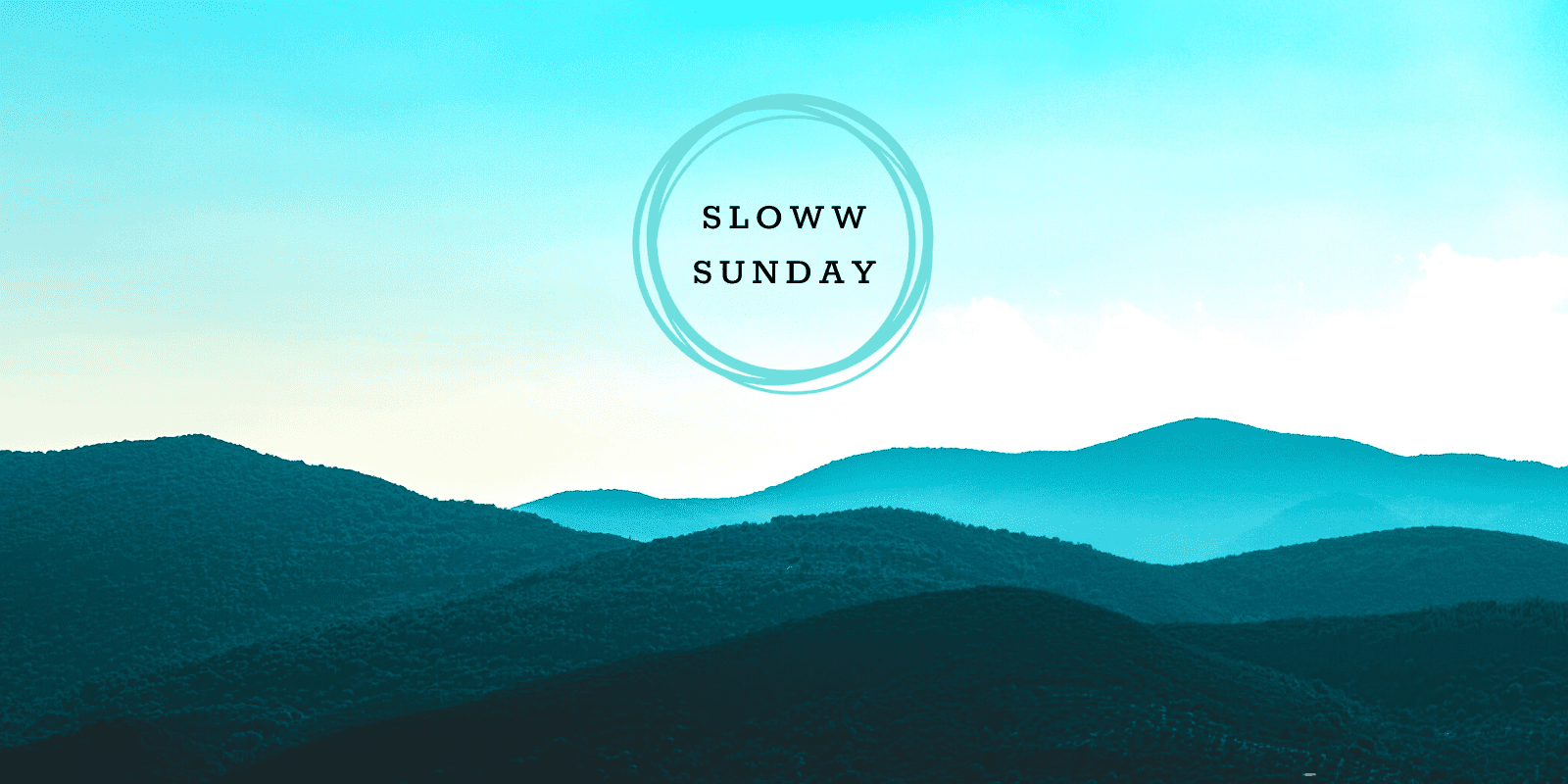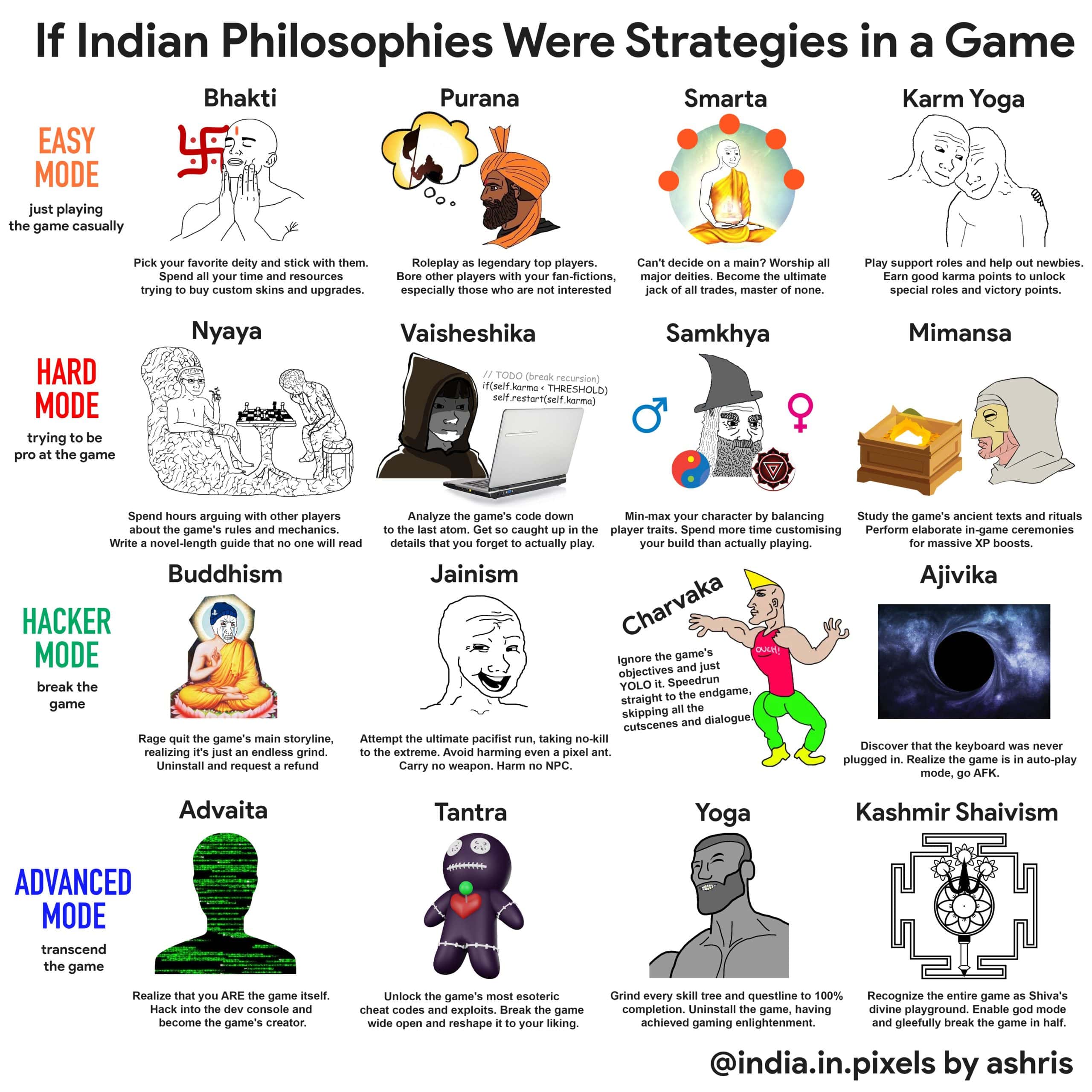Sign up to get the Sloww Sunday newsletter via email for free:👇

Sloww Sunday Newsletter 182 (Apr 7, 2024) — No More Modern Nonfiction, Why to Live, Advaita Vedanta, & More
Sloww Sunday shares my latest and greatest creations and curations to 10,000+ students of life. If you enjoy this issue, please help grow Sloww by forwarding this newsletter to other lifelong learners.
📚 Lifelong Learning & Deeper Development
Hot Take: If you care about learning, stop reading modern nonfiction books!
Last week’s newsletter had a polarizing hot take: if you care about learning, stop listening to podcasts! This week offers another: if you care about learning, stop reading modern nonfiction books! I’ll preface this by saying these are both based on my lived experience after listening to hundreds of podcasts and reading hundreds of books. So, what’s the deal?
The key point about podcasts was that I feel they have a low learning return per minute spent. In general, I learn way less from a 3-5 hour podcast vs spending 3-5 hours reading a book (a 50-75K-word book read at the average reading speed of 250 words-per-minute takes 3-5 hours).
Great, so more books than podcasts. But, all books are not created equal. I’ve lived and learned the hard way that most modern nonfiction books are rarely worth reading and should instead have been blog posts. It seems like the formula of a modern nonfiction book is something like: 10ish chapters, 1 key point per chapter, 3ish fluffy stories/examples illustrating each key point, stretched into a 250ish page book. You probably know these books—the ones where you can usually get the gist from reading the table of contents and the introduction/conclusion of each chapter. I almost always regret reading these “blog post books” in full.
Instead, I’m now making sure I’m reading more time-tested books—often from dead authors. On my full reading list, I started tracking whether the author is alive (🫀) or dead (💀). Out of 400+ total books, there are 200+ books from living authors (🫀) and 200+ books from dead authors (💀). And, out of all the books I’ve read and recommend, it’s close to a similar 50/50 split. But, guess what? Out of all the books I’ve read but don’t recommend, 90% are from living (🫀) authors (as you can see in the gray highlights on my full reading list)! So, this is a reminder from Sloww Sunday #174: Read the best books first.
“You think your pain and your heartbreak are unprecedented in the history of the world, but then you read. It was books (Dostoevsky and Dickens) that taught me that the things that tormented me most were the very things that connected me with all the people who were alive, or who ever had been alive. Only if we face these open wounds in ourselves can we understand them in other people. An artist is a sort of emotional or spiritual historian.” — James Baldwin
Explore more: 50+ posts on Lifelong Learning & Deeper Development (Sloww Stage Support)
🌎 Lighter Living
No-alcohol year ends soon!
Where has an entire year gone? Somehow I only have 20 days left in my no-alcohol year. I’ll have more thoughts to share soon, but over the last year I’ve successfully made it through: a bachelor party, a wedding, wine tasting, family vacation, all holidays, social outings, wife’s work events, and day-to-day life. If you’re considering trying it, I highly recommend it.
🔒 Premium member deep dive: Behind the Scenes: Why I’m Quitting Alcohol
Explore more: 100+ posts on Intentional Living (Sloww Stage 1)
🧭 Higher Purpose
A why to live can bear any how…
Viktor Frankl has to be one of the biggest popularizers of a famous Nietzsche quote through Man’s Search for Meaning (Book Summary & Top Quotes).
From the foreword by Harold Kushner:
- “Several times in the course of the book, Frankl approvingly quotes the words of Nietzsche: ‘He who has a Why to live for can bear almost any How.’ He describes poignantly those prisoners who gave up on life, who had lost all hope for a future and were inevitably the first to die. They died less from lack of food or medicine than from lack of hope, lack of something to live for. By contrast, Frankl kept himself alive and kept hope alive by summoning up thoughts of his wife and the prospect of seeing her again, and by dreaming at one point of lecturing after the war about the psychological lessons to be learned from the Auschwitz experience.” — Harold Kushner
In Frankl’s own words:
- “Man’s search for meaning may arouse inner tension rather than inner equilibrium. However, precisely such tension is an indispensable prerequisite of mental health. There is nothing in the world, I venture to say, that would so effectively help one to survive even the worst conditions as the knowledge that there is a meaning in one’s life. There is much wisdom in the words of Nietzsche: ‘He who has a why to live for can bear almost any how.’” — Viktor Frankl
- “Any attempt to restore a man’s inner strength in the camp had first to succeed in showing him some future goal. Nietzsche’s words, ‘He who has a why to live for can bear with almost any how,’ could be the guiding motto for all psychotherapeutic and psychohygienic efforts regarding prisoners. Whenever there was an opportunity for it, one had to give them a why—an aim—for their lives, in order to strengthen them to bear the terrible how of their existence.” — Viktor Frankl
- “That is the glorious responsibility of such a time, that we know how many difficulties we have to bear, and yet at the same time how many opportunities we hold in our hands! ‘He who has a why to live for can bear almost any how,’ Nietzsche once said. The consciousness of our unprecedented responsibility, which encompasses the future of one’s own life, or that of a family, of a work, of a larger society, or of a people, a state even, of humanity, this true ‘historical’ consciousness of responsibility will allow the man of today to bear the ‘how’ of his difficult life circumstances, to shape them, to surmount them.” — Viktor Frankl (1946 essay)
I decided to investigate the source of the Nietzsche quote which brought me to a couple versions of Twilight of the Idols. There’s some subtle nuance to these:
- “If we possess our why of life we can put up with almost any how.” — Friedrich Nietzsche
- “If you have your why for life, you can get by with almost any how.” — Friedrich Nietzsche
🔒 Premium member deep dive:
- How to Find Meaning in Life with “Man’s Search for Meaning” by Viktor Frankl (+ 2 Infographics)
- How to Live Meaningfully No Matter What with “Yes to Life” by Viktor Frankl (+ Infographic)
Explore more: 50+ posts on Life Purpose (Sloww Stage 2)
🧠 Mental Mastery
Bridging Science & Spirituality
I’ve been digging deeper into Bernardo Kastrup’s analytic idealism philosophy as a bridge between science and spirituality.
Kastrup’s views on free will are very similar to what I’ve found through spirituality. And, as a preview to the section below, here’s Kastrup in conversation with Swami Sarvapriyananda.
“People in Indus Valley three and a half thousand years ago hit upon something that is hair-raisingly undeniable … Absolute nondualism.” — Bernardo Kastrup
🔒 Premium member deep dive (UPDATED): Bernardo Kastrup Synthesis: Everything about Free Will (+ Infographic)
Explore more: 75+ posts on Mental Mastery (Sloww Stage 3)
☯️ Spiritual Seeing
Advaita Vedanta with Swami Sarvapriyananda
Last week was one of the best Wise Walk weeks yet! Swami Sarvapriyananda has to be one of the top living spiritual teachers—he’s the epitome of a master communicator. I’ve read his short book Who am I? (Book Summary) and also plan to read What is Vedanta? and Dissolve into Infinity.
This new page of Swami Sarvapriyananda quotes is essentially a complete teaching in itself that covers everything: Advaita Vedanta & religions, appearances & reality, subject & object, witness & Self, freedom & free will.
Bonus: Speaking of Advaita Vedanta, I just came across this meme and added it to my collection of spiritual awakening memes:

Explore more: 50+ posts on Spiritual Seeing (Sloww Stage 4)
💬 Wise Words
“Spirituality is something like when you close your eyes, you find peace within, and when you open your eyes, your attitude is what can I do for you.” — Swami Ranganathananda
Share: Sloww Sunday currently sends to 10,000+ students of life each week. If you enjoyed this issue, please help grow Sloww by forwarding this newsletter to some friends and family. It’s free for them to subscribe here.
Support: Sloww is a one-human labor of love (it’s just me over here 👋). Your support keeps the site ad-free and invests in me while you invest in yourself—a true win-win! There are free and financial ways to support.
Speak: Have something you want to say, or just want to say hi? It’s always greatly appreciated. Just reply to this email or reach out socially.
All the best,
Kyle Kowalski
Founder, Sloww




